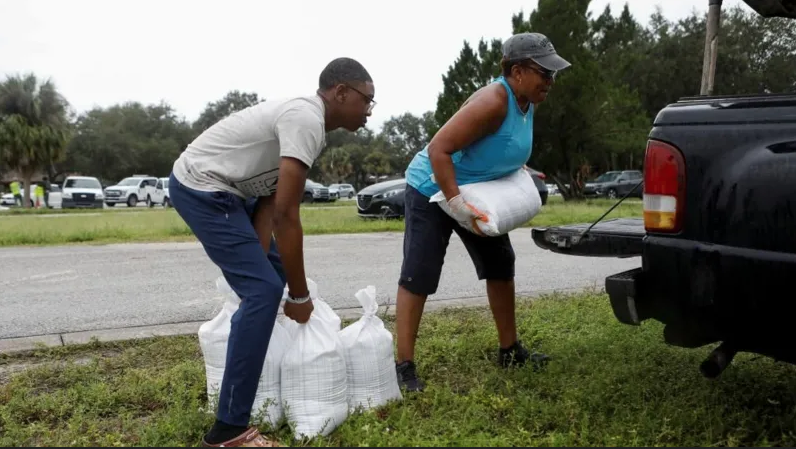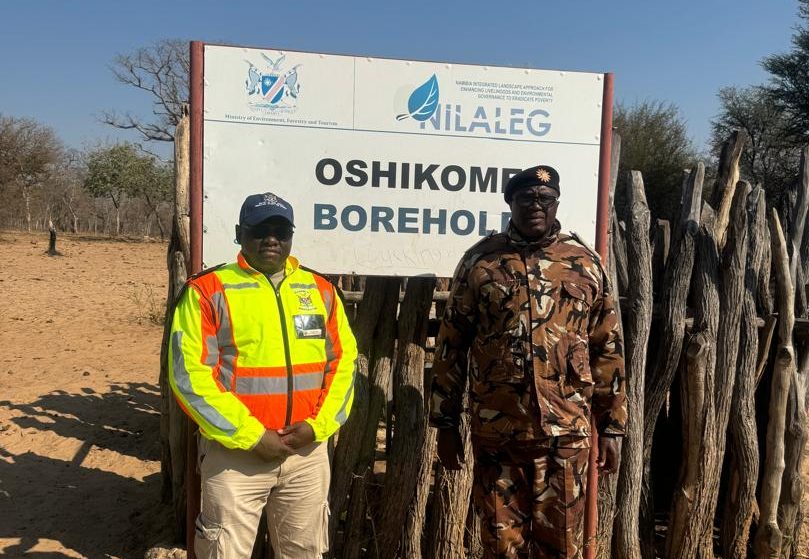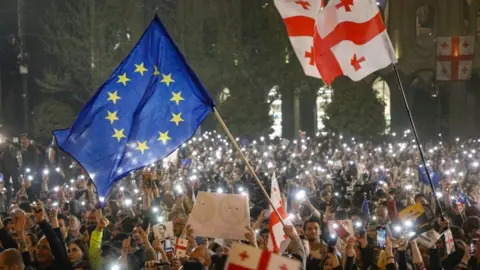US Supreme Court to decide if Trump has immunity in election interference case
Written by on April 25, 2024
A historic case, one that could affect both Donald Trump’s legal and political fates and define the scope of presidential power, lands before the nine justices of the US Supreme Court on Thursday.
Lawyers for Mr Trump and Special Counsel Jack Smith will square off in a hearing on whether former presidents have immunity from criminal prosecution for actions they take while in office.
Mr Smith charged the former president last year with allegedly attempting to overturn the results of the 2020 election. But Mr Trump said he could not be indicted under the US Constitution. The trial has been on hold while the dispute made its way up to the top court in the country.
The case is already historic: Mr Trump is the first former president to have been charged with federal crimes.
And the Supreme Court decision, which may not come until June, will be also.
If the court rules Mr Trump can be prosecuted, then the trial will move forward, but will likely restart in late summer at the earliest, in the heart of the presidential election season. If it decides that he does have immunity, Mr Trump may see other criminal cases against him thrown out.
Mr Smith had pressed the court to make a decision in December, but it declined.
“Richard Nixon famously said that the American people deserve to know whether their president is a crook,” said Kermit Roosevelt, a law professor at the University of Pennsylvania. “The Supreme Court doesn’t seem to agree. They’re fine with preventing this from being decided before the election.”
Donald Trump’s defence
Mr Trump’s case hinges in large part on a 1982 court decision involving another Republican White House occupant, Mr Nixon, that presidents are immune from civil liability – lawsuits brought by private citizens – for actions taken as part of their official duties. Mr Trump’s lawyers contend that the principles behind that decision also apply criminal liability.
“The president should be able to do his job without fearing that justice system is going to be used to harass or retaliate against them,” said Prof Roosevelt, who worked as a clerk for former Supreme Court Justice David Souter. “
Complicating matters is the part of the US Constitution that says leaders who are removed from office through a Senate impeachment trial are still “liable and subject to indictment, trial, judgment and punishment, according to law”.
The president’s lawyers argue it means that former presidents can only be criminally tried after they’ve been impeached and found guilty by the US Senate. Mr Trump was found not guilty after his February 2021 impeachment trial for inciting the 6 January attack on the capitol.
Mr Trump is also taking an “absolute” position on presidential immunity, said Georgetown University Law Professor David Super.
His lawyers have asserted that opening former presidents to criminal prosecution would have serious consequences for the separation of power between the executive and judicial branches of government and the office of the presidency.
This may be because the former president’s actions – attempting to reverse election results to remain in power – appear strongly to be in his own self-interest, said Prof Super. The Supreme Court justices may not see them as part of his official duties.
“He’s really taken an all or nothing stand here,” he said. “That may not be foolish, but it certainly is risky.”
Jack Smith’s Rebuttal
The special counsel’s office is also warning of extreme consequences, saying that if presidents are fully immune from criminal prosecution while in office, they can freely violate any law.
During oral arguments at a lower court, one judge mused that under Mr Trump’s reasoning, a president could order a special forces squad to kill a political opponent and not be charged.
Mr Trump’s assertion that former presidents are protected as long as they aren’t convicted in an impeachment trial also opens a loophole, the prosecutors say. Presidents could commit crimes late in their term or resign prior to Senate conviction and evade prosecution.
“No person is above the law – including the president,” Mr Smith wrote in a Supreme Court brief laying out the arguments he will present on Thursday.
While there are no past examples of a former president being prosecuted, Mr Smith also points to Mr Nixon. He says the pardoning of Mr Nixon for the Watergate coverup after he left office is proof that past presidents were aware that they were open to criminal charges.
Supreme Court scenarios
The justices – three of whom were appointed by Mr Trump – could rule former presidents have blanket immunity or hold they do not have any criminal immunity.
The court could also issue a decision somewhere in the middle. For example, it could outline requirements for juries to consider, such as whether a former president was carrying out official duties. Or it could rule Mr Trump may have some level of immunity but leave it to a lower court to make that determination before trial.
“I think that, politically, that will be a very attractive option,” said Mr Super. “I don’t think that they would like to be solely responsible for ending these prosecutions.”
Such an outcome would leave Mr Smith’s prosecution in limbo, however, opening the door to further challenges and delays.
In such a politically charged case, the justices may try to issue a unanimous decision, Mr Roosevelt said, as they did in another case involving Mr Trump and Colorado’s primary ballot. That would probably be a measured ruling that does not give Mr Trump blanket protection but leaves some opening for presidential immunity, he said.
But the court could also fracture along its ideological fault lines.
Mr Super envisioned an outcome where the three most conservative justices endorse sweeping immunity, the three most liberal give Mr Trump no protection and the remaining three come down somewhere in between.
Then, the holding of those middle justices would carry the day – and also create a muddle for lower courts.
Far-reaching implications
The court’s ruling in this case could have a direct impact on Mr Trump’s election interference case in Georgia.
It could also affect the one involving classified documents found at his home in Florida. While the alleged crimes took place after Mr Trump left office, he asserts he declassified the documents while he was still in office.
The only case wholly untouched by the Supreme Court drama is the hush-money trial underway in New York.
While the Supreme Court may decide later this year that current and former presidents have immunity from prosecution, the jury in New York is considering whether Mr Trump is guilty of crimes committed in 2016, when he was still just candidate Trump.
The post US Supreme Court to decide if Trump has immunity in election interference case appeared first on The Namibian.



